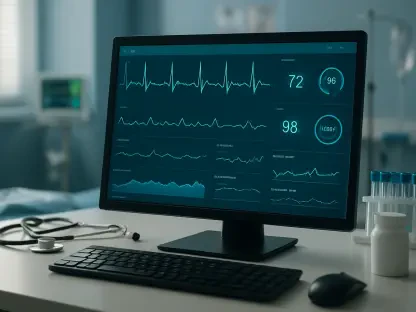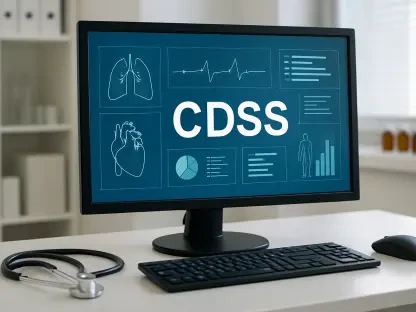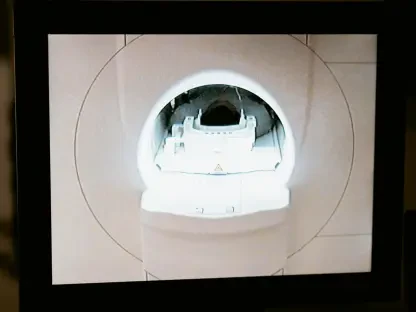In an era where healthcare professionals face unprecedented challenges, Suki, a trailblazer in AI-driven clinical support tools, has launched a groundbreaking nursing consortium to transform the daily grind of nurses through innovative technology. This initiative, highlighted in recent industry coverage, is dedicated to developing “Suki for Nurses,” an AI-powered assistant designed specifically to lighten the crushing administrative load that often overshadows patient care in diverse medical environments. By uniting expertise from various health systems and technology partners, the project seeks to address critical issues like burnout and excessive documentation time, which have long plagued the nursing profession. The promise of this endeavor lies in its potential to redefine workflows, allowing nurses to focus on what truly matters—delivering compassionate, hands-on care to patients. As this collaboration unfolds, it signals a significant step toward a more sustainable future for healthcare, driven by cutting-edge solutions tailored to real-world needs.
Tackling the Administrative Burden
The administrative workload in nursing has become a formidable obstacle, often consuming vast portions of a nurse’s shift and detracting from patient interaction. Reports indicate that nurses can spend as much as 240 minutes on electronic health record (EHR) documentation alone, a statistic underscored by insights from Mercy’s Betty Jo Rocchio. This relentless focus on paperwork fuels mental exhaustion and contributes to widespread burnout, a crisis affecting healthcare systems globally. Suki’s consortium aims to counter this by deploying AI to automate repetitive tasks such as patient assessments and admission forms. By streamlining these processes, the technology seeks to free up valuable time, enabling nurses to prioritize direct care over clerical duties. The ultimate goal is to reduce cognitive overload, fostering a work environment where clinical expertise and empathy take center stage over endless data entry.
Beyond mere automation, the initiative focuses on reimagining how nurses engage with their daily responsibilities in high-pressure settings. The burden of documentation not only saps energy but also diminishes job satisfaction, a key driver of turnover in the profession. “Suki for Nurses” is being crafted to tackle these pain points with precision, targeting specific tasks that can be handled digitally without sacrificing accuracy or compliance with healthcare standards. This approach promises to alleviate the frustration of navigating cumbersome EHR systems, which often vary across institutions and add layers of complexity to already demanding roles. By addressing these inefficiencies, Suki’s platform could pave the way for a renewed sense of purpose among nurses, allowing them to reconnect with the core mission of healing rather than being bogged down by administrative minutiae.
Harnessing Frontline Insights for Tailored Solutions
Central to Suki’s strategy is a commitment to collaborative development, drawing on the expertise of nurse leaders from a wide array of healthcare settings to ensure the AI tools are both relevant and practical. Participants include representatives from McLeod Health, Fisher-Titus, and rural providers using systems like Epic, Oracle Health, and Meditech, reflecting a broad spectrum of operational realities. This diversity in perspective helps guarantee that the resulting technology accounts for the unique challenges faced in urban hospitals as well as smaller, resource-constrained facilities. Punit Soni, Suki’s founder and CEO, has emphasized the importance of scalability and customization, noting that insights from large networks and rural clinics alike are vital to creating a solution that resonates across the board. Such an inclusive approach aims to build trust and ensure widespread adoption among nursing staff.
This collaborative model also serves as a mechanism to bridge gaps between theoretical innovation and on-the-ground application in clinical environments. By involving frontline workers in the design process, Suki can pinpoint specific pain points—such as the time spent on redundant data entry or navigating disparate systems—that might otherwise be overlooked by tech developers. The consortium’s structure fosters dialogue between nurses and technologists, ensuring that “Suki for Nurses” evolves in response to real feedback rather than assumptions. This method not only enhances the tool’s functionality but also empowers nurses by giving them a voice in shaping the technology that will define their workflows. The result is expected to be a platform that feels intuitive and supportive, rather than an additional burden, marking a significant shift in how healthcare AI is conceptualized and deployed.
Enhancing Workflow Through Seamless Technology
A critical aspect of Suki’s vision is ensuring that “Suki for Nurses” integrates effortlessly with existing EHR platforms, overcoming a frequent barrier to adopting new tools in healthcare settings. Many facilities struggle with technologies that disrupt established systems, leading to resistance among staff already stretched thin. By prioritizing compatibility with major EHRs, the initiative minimizes friction, allowing nurses to incorporate AI assistance without overhauling current practices. This focus on integration underscores a practical approach, recognizing that usability is just as important as innovation in driving meaningful change. The goal is to create a tool that feels like a natural extension of daily routines, enhancing efficiency without adding complexity to already demanding workloads.
Further amplifying this effort is a strategic partnership with AvaSure, a provider of virtual care services, which introduces hands-free documentation capabilities for key tasks like admissions and discharges. This ambient technology reduces the need for manual input, freeing nurses from the tether of keyboards and screens during critical patient interactions. Such advancements are poised to save time and reduce errors, as voice-driven systems capture information in real-time with minimal effort. This collaboration highlights Suki’s commitment to leveraging complementary technologies to address multiple facets of administrative strain. By combining EHR integration with virtual care solutions, the platform aims to deliver a comprehensive toolkit that supports nurses at every stage of patient engagement, ultimately fostering a more streamlined and less stressful work environment.
Responding to Industry Challenges and Future Potential
Suki’s consortium aligns closely with pressing industry concerns, particularly the urgent need to improve nurse retention and satisfaction in the face of chronic understaffing. Statistics reveal that one in four nurses considers leaving the profession due to burnout, a trend that threatens the stability of healthcare systems worldwide. AI solutions like “Suki for Nurses” offer a potential remedy by creating more manageable workloads and fostering sustainable work conditions. Testimonials from consortium members, such as Ashley Huggins of McLeod Health, highlight the profound impact that reducing administrative duties could have on care quality. This initiative reflects a growing recognition within the sector that technology must play a pivotal role in supporting staff if patient outcomes are to improve over the long term.
Looking ahead, this project also mirrors broader trends toward AI-driven efficiency in healthcare, balanced by a cautious optimism about its implications. While early adopters like Mercy have reported positive outcomes in staff experience and cost savings after implementing AI tools, lingering concerns about technology’s impact on staffing levels persist among some nurses. Suki’s collaborative framework seeks to address these apprehensions by ensuring that AI serves as a supportive ally rather than a replacement for human roles. The consortium’s work could set a precedent for how technology is developed and integrated into clinical practice over the coming years. By focusing on inclusivity and real-world applicability, this effort stands to influence future innovations, potentially shaping a healthcare landscape where nurses are empowered by tools that genuinely enhance their capacity to care.
Building a Sustainable Path Forward
Reflecting on Suki’s bold move to establish a nursing consortium, it’s clear that this step marks a pivotal moment in addressing the entrenched administrative challenges that have long burdened nurses. The development of “Suki for Nurses” aims to reshape workflows by automating tedious tasks, drawing on diverse frontline insights to ensure relevance across varied healthcare settings. Partnerships with EHR providers and virtual care innovators like AvaSure have laid the groundwork for seamless, practical solutions that prioritize ease of use. Moving forward, the focus should shift to building trust among nursing staff by transparently addressing concerns about job impacts while demonstrating tangible benefits through pilot programs. Continuous engagement with consortium members will be crucial to refine the platform, ensuring it adapts to evolving needs. This initiative has the potential to inspire a wave of tailored AI tools, setting a benchmark for how technology can support healthcare professionals in delivering patient-centered care with renewed focus and energy.









